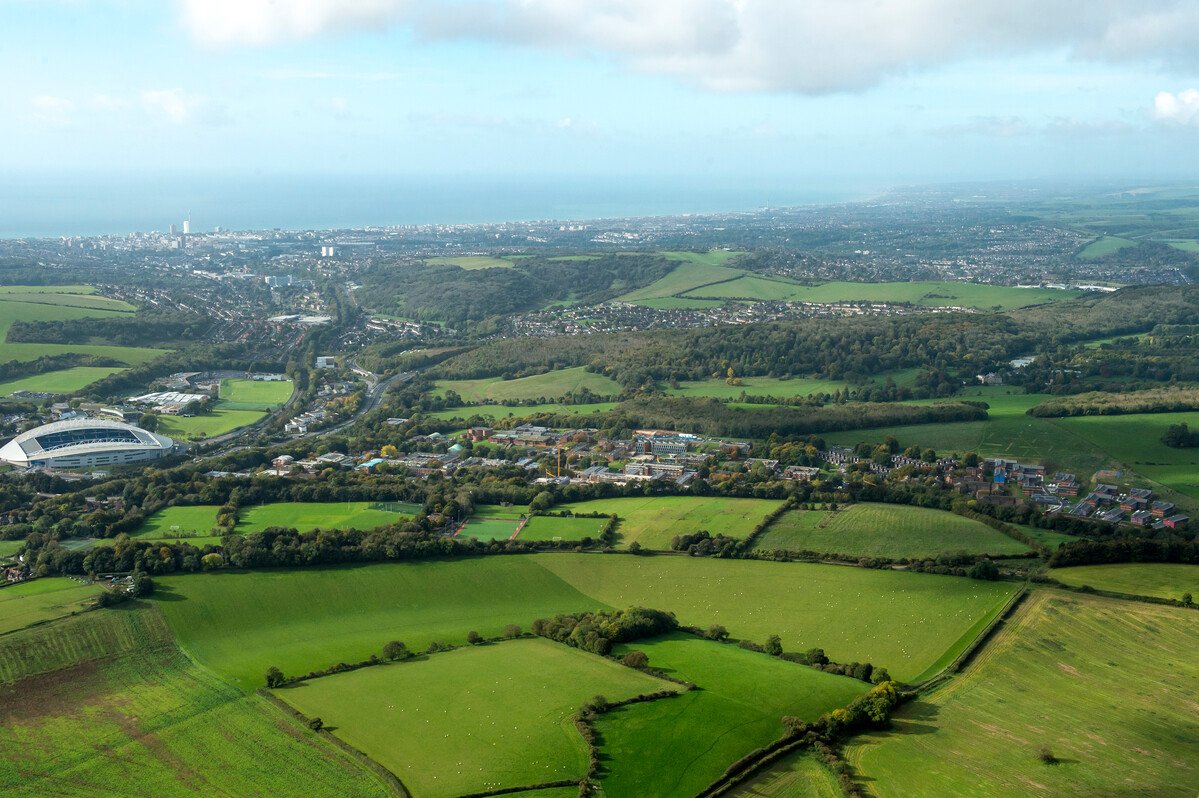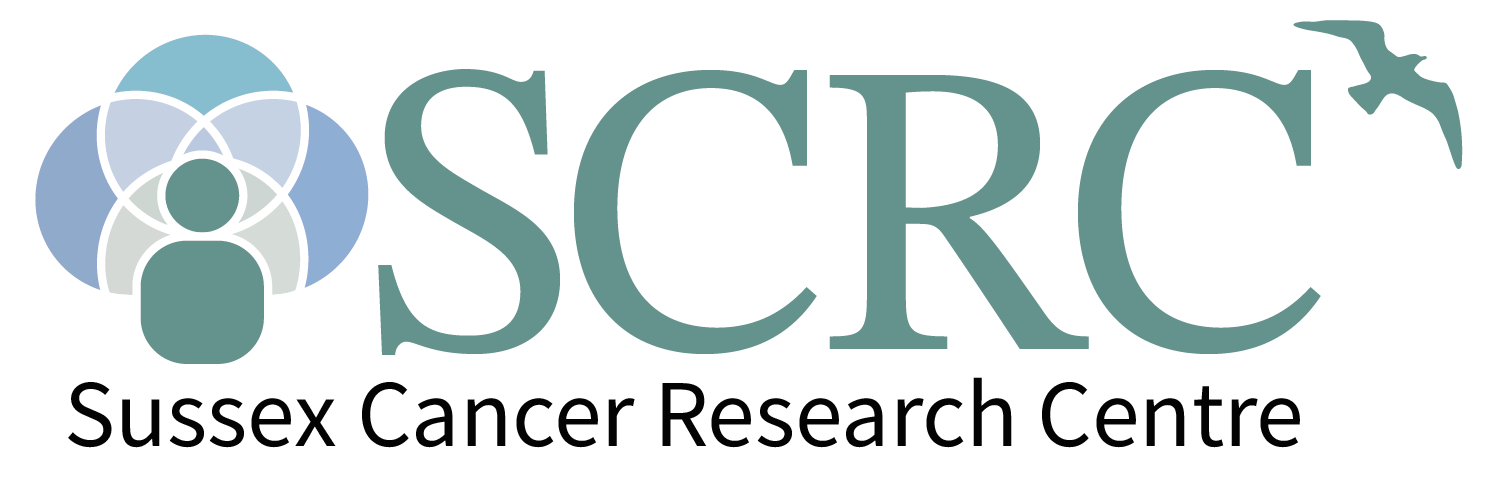
Thanks to the generous support of The Sussex Cancer Fund, The University of Brighton, Brighton and Sussex Medical School, and the University of Sussex, we have made five awards to kick-start exciting new collaborative research projects across Sussex. These diverse research projects span from bench to bedside and all share the potential to unlock new treatment approaches for multiple cancer types.
The SCRC sat down with Jeanne Dekerle to talk about her project.
SCRC: Can you share a brief overview of your project?
JD: This is a really exciting project. We are going to study two groups and compare their results: A group of breast cancer patients who have just finished their treatment and feel more fatigued than before cancer diagnosis, and a group of healthy people. We want to know if the two groups differ in their ability to feel their body; for example the feeling of their with questions such as “can you feel your heart in your chest right now?” Some can. Some can’t. we are also interested in their ability to feel changes in the temperature of their skin. That’s what we are primary interested in. We will also test ability to process visual information but don’t expect much differences between the two groups as we think cancer patients may differ mainly in their ability to sense their internal world (i.e. their body). This has been shown in other conditions where fatigue is present.
We also currently have little understanding of the effect physical exercise has on the daily experience of fatigue (this is also called chronic fatigue) while exercise, you might be surprised, seems to help some people with chronic fatigue. So we want to study this interaction as well. We will be the first to carry out these assessments in breast cancer patient.
Secondary to our two main questions, we will also look at other factors that other researchers have been associated with chronic fatigue (immunological markers, body compositions, physical activity, sleep disturbance, anxiety and depression) to help explain our main results.
SCRC: What was the inspiration for your project?
JD: Over the past 5 years or so, I have developed a keen interest in how we (humans) feel during exercise with a focus on the dissociation between the sensation of effort (how hard does this exercise feels?) and fatigue (related to a diminished capacity to cope with a task). I think it’s important for people to understand the difference to engage more mindfully in physical exercise, and for researchers to study better why exercise may or may not be good for you if you suffer from everyday fatigue. Most of my work so far has focused on their interaction in healthy humans and I felt really excited when I had the opportunity to look into this in people who struggle with chronic fatigue. We are currently completing a study on people with multiple sclerosis for instance. So I was delighted when I heard there was appetite from patients, NHS practitioners, and health care professionals in understanding cancer-related fatigue better and how / why exercise could help alleviate this very debilitating symptom. I was stunned when I realised that cancer-related fatigue (CRF) affects 75 to 90% of cancer patients during and sometimes for many years after illness and/or anticancer treatment. You will not be surprised to read that people living with and beyond cancer are calling for some research to better understand the symptom and inform effective management. Daily fatigue is extremely debilitating and impact greatly quality of life and return to work. We need to understand and find ways of managing it better.
SCRC: How do you foresee your project leading to patient benefit? And when?
JD: Well first, all participants in our study will gain understanding of their own ability to sense their body and we will undoubtably want to hear their experience of fatigue and how it feels like. We will share our current scientific understanding, and discuss ways to manage it. I have no doubt all participants will learn a lot and we will equally learn a lot through this time spent together.
We are planning to conduct the testing in the Summer through to the Autumn 2024 so we should be able to communicate our results in the Spring 2025, Summer at the latest. We will communicate our findings through social media and the SCRC newsletter. I would be more than happy to attend seminars or evening talks organised by Charities to present our work. So please, reach out!
SCRC: If the project is successful—what’s next?
JD: With regards to research, we understand from patients and health care professionals that the effect of exercise on the symptom of daily fatigue is not very clear so exercise may be good for some and not so good for other patients. The recent development of a model of fatigue (i.e. based on the ability to sense our body; hence the focus of our first study!) offers some explanation for the change in the experience of the symptom as a disease progresses, during and after treatment, without or without physical exercise. This new model has already informed new research and advances in other clinical conditions where daily fatigue is an issue. Understanding the mechanisms of fatigue is critical for the development of management strategies designed to alleviate the symptom because we need to target its root. Next will therefore be to move towards the testing of exercise-based interventions. Cancer patients voice will be of critical importance for us to inform our next collaborative work on CRF.
In addition to the research questions we want to address, this project will enable us to welcome research participants to our newly built exercise and health science laboratory on the Falmer campus of the University of Brighton (the sport and exercise science department of the University of Brighton has recently moved from Eastbourne). So the ‘what next’ will include some assessment of our own practices to try to facilitate our work with our new local community. We will welcome feedback from our participants on how to do things better. More specific to this study, we have also developed some new methods for assessing sensory abilities so we will be able to reflect on the applicability and feasibility of these testing procedures with patients with cancer and fatigue and we will again, welcome their thoughts as they go through our testing. This project sits within a long-term vision. This first project will allow us to build rapport with the cancer community of oncologists and patients, to listen and conduct meaningful community-informed research.
SCRC: Can you describe any interdisciplinary aspects of your projects?
JD: There is a team of four practitioners and academics behind this project. This will be the first work we will carry out together and this is really exciting in its own right (I am going to learn a lot!)! Our team consists of Dr. Ollie Minton, an oncologist and Macmillan clinical lead palliative medicine (University Hospitals Sussex) who has already carried out some research on fatigue in cancer patients. Ollie has also published work on cancer-related fatigue (CRF) and a possible link with inflammation in breast cancer patients. Ollie will help with patient recruitment in particular. Dr. Jessica Eccles is a Clinical Reader at the Brain-Body Medicine Department of Clinical Neuroscience, Brighton and Sussex Medical School (BSMS). Jessica has a wealth of experience in patient-based studies carried out within the NHS settings and has also published research on fatigue. Her present brain-body research on sensory abilities is also going to be extremely valuable for this project. Dr Nadia Terrazzini from the University of Brighton is an immunologist with expertise in cancer and the immune system. Nadia will advise the team and lead the laboratory analysis. My expertise is exercise and fatigue with a keen interest in understanding how we feel - as mentioned earlier.
We are all really excited about this project, and the prospect of further research in this field. We spread across three different institutions and this project gives us the opportunity to find the best way to work together, cohesively and efficiently before aiming for larger-scale, collaborative projects.
SCRC: What do you think are the main challenges we face in cancer research? How does your project help to address this?
JD: The appetite for more research is very evident to me. Cancer-related fatigue in particular is recognized as a significant and distressing symptom that warrants attention: both causes and management strategies are key research priorities set by the National Cancer Research Institute (www.ncri.org.uk/the-uk-top-10-research-priorities-for-living-with-and-beyond-cancer/) because CRF remains poorly understood despite its prevalence. So there is a willingness to get some research done.
I think one of our challenges lies in our limited understanding of how fatigue is felt and therefore why / how it can be experienced daily in people with cancer. Once we understand the underlying mechanisms within the body better, we can move onto the study of some management strategies designed to alleviate the symptom (such as physical exercise). Hence the aim of our first study.
There is a lot of research carried out in laboratories and there seems to be a need to bring the ‘bench to the bed’ with what some call ‘translational research’ in cancer research. We see our research as translational as we aim to build cancer-related fatigue knowledge base through the present proof-of-concept project to then progress our preliminary observations with an intervention aiming at alleviating CRF such as through embodied exercise for somatosensory training.
Another challenge is for researchers in universities like myself to work closely with patients and NHS practitioners. This type of project takes time but I feel confident we have the right team and support for this. Addressing some of these challenges requires a collaborative effort among scientists, clinicians, regulatory bodies, and patients. We feel optimistic that our enthusiastic new team, supported by the SCRC, can foster an effective approach to cancer research and treatment.
SCRC: If people want to follow you and your team or get updates as the project progresses, where can they get more info?
JD: Updates will be shared through the SCRC newsletter. Here is my Brighton profile and X profile.
Support life-changing research
Your support has an enormous impact on our research, transforming what we are able to do. Together we have the potential to transform the lives of cancer patients. With your support we are working to discover cutting-edge treatment approaches, that are both kinder and more effective.
We have parntered with the Sussex Cancer Fund to ensure your donations support life-changing research here in Sussex.
If you want to discuss your donation contact us.



